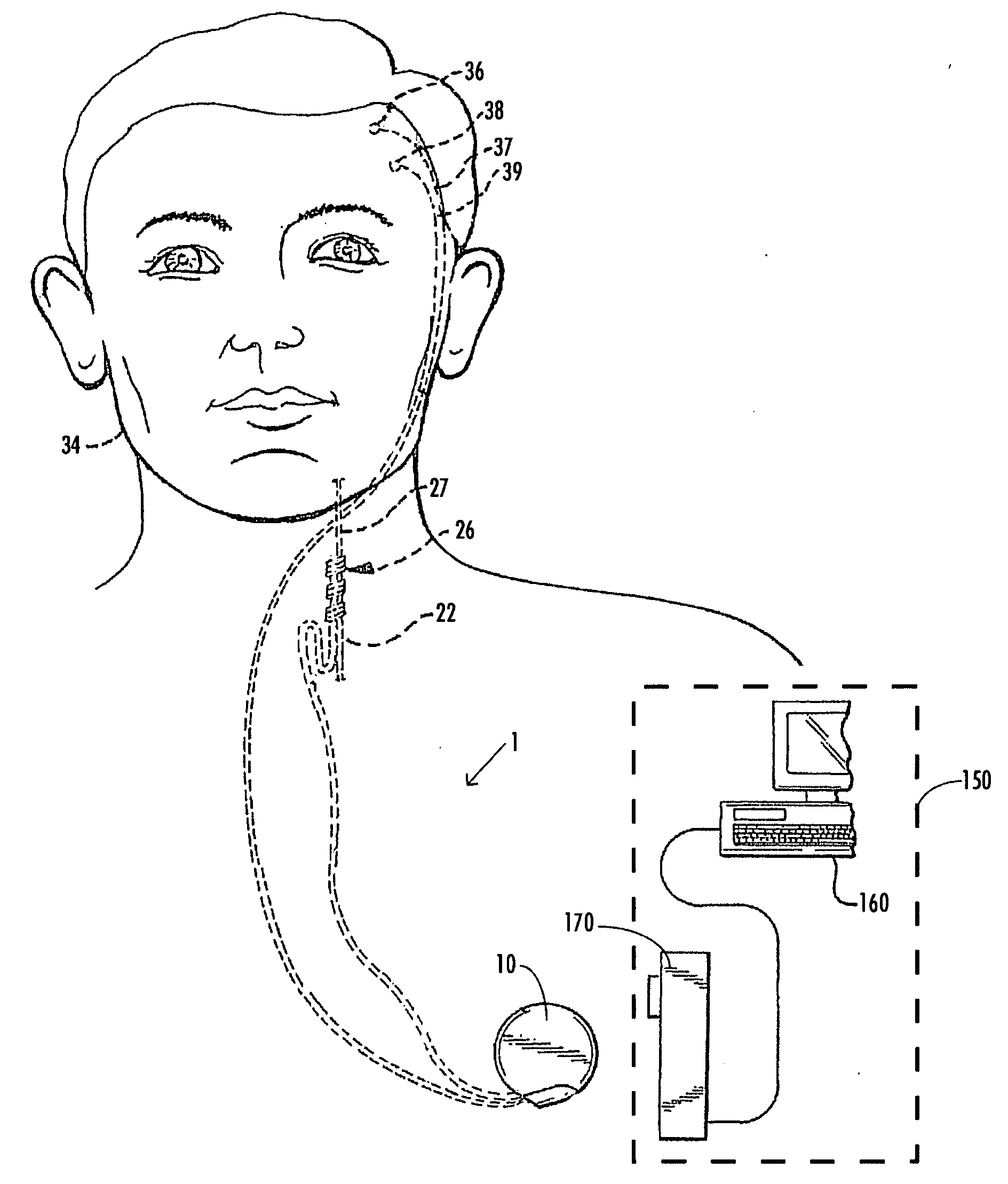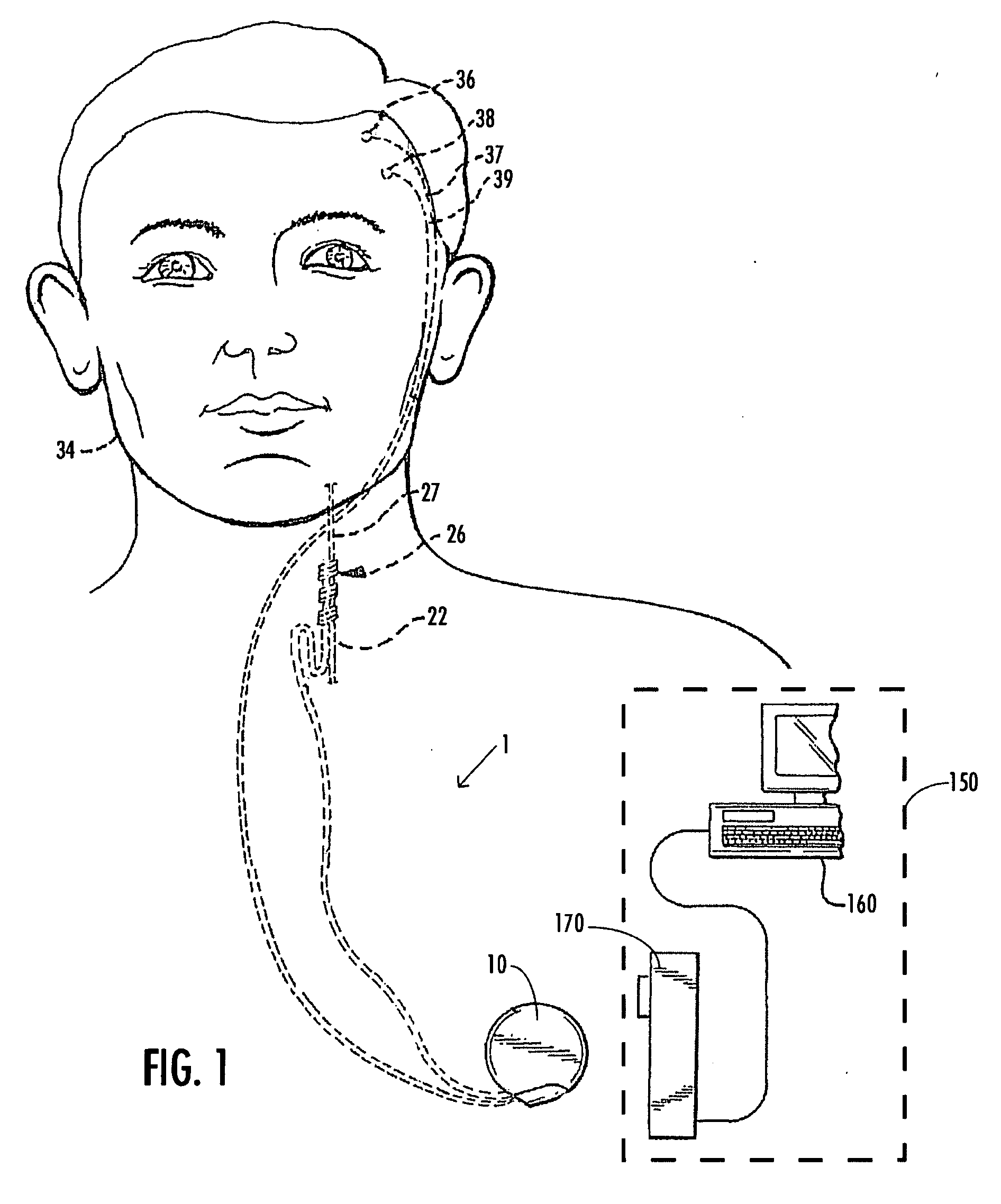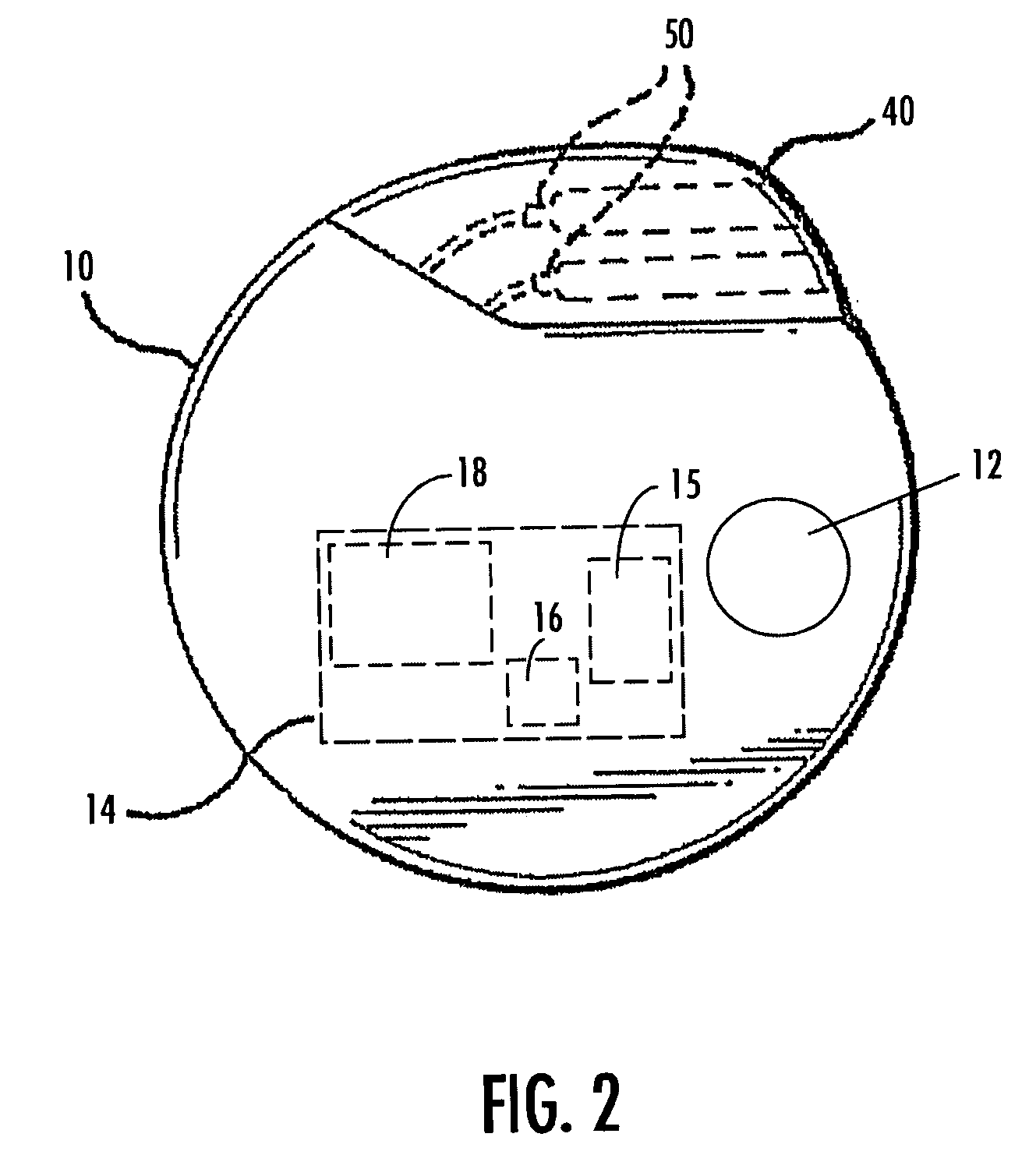Selective neurostimulation for treating mood disorders
a neurostimulation and mood technology, applied in the field of selective neurostimulation for treating mood disorders, can solve the problems of not being effective in alleviating the underlying root cause of the disorder, abnormally low concentrations of serotonin and its metabolites, and depression patients, so as to enhance the alleviation of symptoms and alter the modulation of neuronal activity
- Summary
- Abstract
- Description
- Claims
- Application Information
AI Technical Summary
Benefits of technology
Problems solved by technology
Method used
Image
Examples
Embodiment Construction
Definitions.
[0031] The term “mood disorder” refers to depression, major depressive disorder, bipolar disorder, dysthymic disorder, anxiety disorders. Anxiety disorders include, but are not limited to, obsessive compulsive disorder (OCD), post-traumatic stress syndrome (PTSD), panic disorder, generalized anxiety, simple phobia and social phobia. Use of the term “mood disorder” herein also refers to one or more of the above-named disorders.
[0032] As used herein, the terms “stimulating” and “stimulator” generally refer to delivery of a signal, stimulus, or impulse to neural tissue for affecting neuronal activity of a neural tissue (e.g., a volume of neural tissue in the brain or a nerve). The effect of such stimulation on neuronal activity is termed “modulation”; however, for simplicity, the terms “stimulating” and “modulating,” and variants thereof, are sometimes used interchangeably herein. The effect of delivery of the signal to the neural tissue may be excitatory or inhibitory a...
PUM
 Login to View More
Login to View More Abstract
Description
Claims
Application Information
 Login to View More
Login to View More - R&D
- Intellectual Property
- Life Sciences
- Materials
- Tech Scout
- Unparalleled Data Quality
- Higher Quality Content
- 60% Fewer Hallucinations
Browse by: Latest US Patents, China's latest patents, Technical Efficacy Thesaurus, Application Domain, Technology Topic, Popular Technical Reports.
© 2025 PatSnap. All rights reserved.Legal|Privacy policy|Modern Slavery Act Transparency Statement|Sitemap|About US| Contact US: help@patsnap.com



